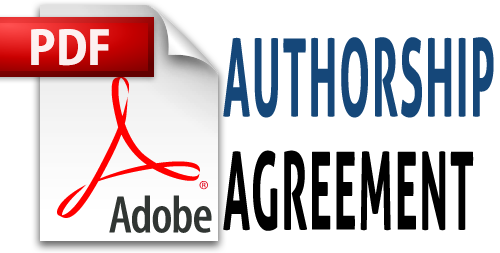PENERAPAN GAMIFIKASI DALAM PENDIDIKAN FISIKA: SUATU STUDI LITERATUR SISTEMATIS
 Badryatusyahryah Badryatusyahryah(1*),
Murni Winarsih(2),
Cecep Kustandi(3),
Permono Adi Putro(4)
Badryatusyahryah Badryatusyahryah(1*),
Murni Winarsih(2),
Cecep Kustandi(3),
Permono Adi Putro(4)
(1) Program Pascasarjana Teknologi Pendidikan, Universitas Negeri Jakarta, Jakarta Timur 13220
(2) Program Pascasarjana Teknologi Pendidikan, Universitas Negeri Jakarta, Jakarta Timur 13220
(3) Program Pascasarjana Teknologi Pendidikan, Universitas Negeri Jakarta, Jakarta Timur 13220
(4) Program Studi Fisika, Fakultas Sains, Universitas Mandiri, Subang 41211
(*) Corresponding Author
 Abstract viewed : 3184
|
Abstract viewed : 3184
|  PDF downloaded : 458
PDF downloaded : 458
Abstract
The application of gamification in education has attracted many researchers to increase engagement and achieve more effective learning. Applying technology in learning during the last few years, can increase student’s motivation towards learning physics. The aim of this study is to present empirical findings from the current literature on the use of gamification in physics education. Therefore, we conducted a systematic literature review of 18 empirical scientific articles published in various Google Scholar databases from 2017 to 2021 using Publish or Perish. This review reveals the latest emerging gamification trends in physics education, and also reveals literature gaps, challenges, barriers, and broadens possible future research directions. We found that gamification can provide more information about the learning process. Gamification can create a competitive environment in an effort to improve student learning outcomes. The learning outcomes that were shown to be most affected were the motivation and involvement of students. The findings of this study provide a framework and insight for future researchers regarding content areas, educational levels, theoretical models, results, methodologies, and assessment instruments.
Abstrak
Penerapan gamifikasi dalam pendidikan telah menarik banyak peneliti untuk meningkatkan keterlibatan dan mencapai pembelajaran yang lebih efektif. Menerapkan teknologi dalam pembelajaran selama beberapa tahun terakhir ini, dapat meningkatkan motivasi peserta didik terhadap pembelajaran fisika. Tujuan penelitian ini adalah untuk menyajikan temuan empiris dari literatur mutakhir tentang penggunaan gamifikasi dalam pendidikan fisika. Oleh karena itu, kami melakukan systematic literature review terhadap 18 artikel ilmiah empiris yang diterbitkan di berbagai Google Scholar database dari tahun 2017 sampai 2021 menggunakan Publish or Perish. Tinjauan ini mengungkapkan tren gamifikasi terbaru yang muncul dalam pendidikan fisika, dan juga mengungkapkan kesenjangan literatur, tantangan, hambatan, dan memperluas kemungkinan arah penelitian di masa depan. Kami menemukan bahwa gamifikasi dapat memberikan lebih banyak informasi tentang proses pembelajaran. Gamifikasi dapat menciptakan lingkungan yang kompetitif dalam upaya meningkatkan hasil belajar peserta didik. Hasil belajar yang ditunjukkan paling terpengaruh adalah motivasi dan keterlibatan peserta didik. Temuan dari penelitian ini memberikan kerangka kerja dan wawasan bagi peneliti di masa depan mengenai bidang konten, tingkat pendidikan, model teoritis, hasil, metodologi, dan instrumen penilaian.
Keywords
References
Aguiar-Castillo, L., Hernández-López, L., De Saá-Pérez, P., & Pérez-Jiménez, R. (2020). Gamification as a motivation strategy for higher education students in tourism face-to-face learning. Journal of Hospitality, Leisure, Sport & Tourism Education, 27, 100267. https://doi.org/10.1016/j.jhlste.2020.100267
Ahmed, H. D., & Asiksoy, G. (2021).The Effects of Gamified Flipped Learning Method on Student’s Innovation Skills, Self-Efficacy towards Virtual Physics Lab Course and Perceptions. Sustainability, 13(18), 10163. https://doi.org/10.3390/su131810163
Aini, Q., Yusup, M., Santoso, N. P. L., Ramdani, A. R., & Rahardja, U. (2021).Digitalization Online Exam Cards in the Era of Disruption 5.0 using the DevOps Method. Journal of Educational Science and Technology (EST), 7(1), 67–75. https://doi.org/10.26858/est.v7i1.18837
Ali, B., & Dahlhaus, P. (2022).The Role of FAIR Data towards Sustainable Agricultural Performance: A Systematic Literature Review. Agriculture, 12(2), 309. https://doi.org/10.3390/agriculture12020309
Amado, C. M., & Roleda, L. S. (2020). Game Element Preferences and Engagement of Different Hexad Player Types in a Gamified Physics Course. Proceedings of the 2020 11th International Conference on E-Education, E-Business, E-Management, and E-Learning, 261–267. https://doi.org/10.1145/3377571.3377610
Amado, C. M., & Roleda, L. S. (2019). Student Engagement in a Gamified Physics Course. Proceeding of the 2nd International Conference on Future of Education, 85–95. https://doi.org/10.17501/26307413.2019.2109
Borges, A. F. S., Laurindo, F. J. B., Spínola, M. M., Gonçalves, R. F., & Mattos, C. A. (2021). The strategic use of artificial intelligence in the digital era: Systematic literature review and future research directions. International Journal of Information Management, 57, 102225. https://doi.org/10.1016/j.ijinfomgt.2020.102225
Collins, C., Dennehy, D., Conboy, K., & Mikalef, P. (2021). Artificial intelligence in information systems research: A systematic literature review and research agenda. International Journal of Information Management, 60, 102383. https://doi.org/10.1016/j.ijinfomgt.2021.102383
dela Cruz, M. K. B., Tolentino, A. N., & Roleda, L. S. (2020). Increasing Student Motivation in College Physics with Gamified Instruction. Proceedings of the 2020 11th International Conference on E-Education, E-Business, E-Management, and E-Learning, 268–274. https://doi.org/10.1145/3377571.3377623
Diana, N., Latifah, S., Yuberti, Komikesari, H., Rohman, M. H., & Tiyan, Lady. (2021). Developing an e-learning-based critical-thinking assessment as a physics learning evaluation media with Kahoot! interactive quiz. Journal of Physics: Conference Series, 1796(1), 012055. https://doi.org/10.1088/1742-6596/1796/1/012055
Ferreira, W. S., Ferreira, W. S., & Ferreira, S. R. B. (2019). Gamification Applied to the Physics Teaching. International Journal of Learning and Teaching, 318–321. https://doi.org/10.18178/ijlt.5.4.318-321
Forndran, F., & Zacharias, C. R. (2019). Gamified experimental physics classes: a promising active learning methodology for higher education. European Journal of Physics, 40(4), 045702. https://doi.org/10.1088/1361-6404/ab215e
Groening, C., & Binnewies, C. (2019). “Achievement unlocked!” - The impact of digital achievements as a gamification element on motivation and performance. Computers in Human Behavior, 97, 151–166. https://doi.org/10.1016/j.chb.2019.02.026
Hahn, L., & Klein, P. (2022). Eye tracking in physics education research: A systematic literature review. Physical Review Physics Education Research, 18(1), 013102. https://doi.org/10.1103/PhysRevPhysEducRes.18.013102
Henukh, A, Astra, I. M., Lipikuni, H. F., & Uskenat, K. (2020). Penilaian Formatif Berbasis Quizizz Pada Mata Kuliah Fisika Dasar Pada Masa Covid-19. Musamus Journal of Science Education, 3(1), 001–007. https://doi.org/10.35724/mjose.v3i1.3515
Henukh, Anderias, & Guntara, Y. (2020). Analyzing the response of learners to use kahoot as gamification of learning physics. Gravity : Jurnal Ilmiah Penelitian Dan Pembelajaran Fisika, 6(1), 72–76. https://doi.org/10.30870/gravity.v6i1.7108
Hiebl, M. R. W. (2021). Sample Selection in Systematic Literature Reviews of Management Research. Organizational Research Methods, 109442812098685. https://doi.org/10.1177/1094428120986851
Iquira Becerra, D. A., Herrera Quispe, J. A., Apaza Aceituno, R. G., Poma Vargas, G. M., Fernandez Zamora, F. G., Huillca Mango, J. L., Anccasi Figueroa, G. P., Perez Vizcarra, A. A., & Torres Chana, J. W. (2017). Evaluation of a Gamified 3D Virtual Reality System to Enhance the Understanding of Movement in Physics. Proceedings of the 9th International Conference on Computer Supported Education, 395–401. https://doi.org/10.5220/0006328003950401
Iquira, D., Sotelo, B., & Sharhorodska, O. (2019). A Gamified Mobile-Based Virtual Reality Laboratory for Physics Education: Results of a Mixed Approach (pp. 247–254). Springer. https://doi.org/10.1007/978-3-030-23525-3_32
Jiménez-Sáez, J. C., Ramírez de la Piscina, S., Castellanos, M., & Palacios, P. (2019). Trends in university teaching in physics: Interaction and gamification. EDULEARN19 Proceedings, 2831–2836. https://doi.org/10.21125/edulearn.2019.0763
Kalogiannakis, M., Papadakis, S., & Zourmpakis, A.-I. (2021). Gamification in Science Education. A Systematic Review of the Literature. Education Sciences, 11(1), 22. https://doi.org/10.3390/educsci11010022
Karlsson, L. C., Antfolk, J., Putkonen, H., Amon, S., da Silva Guerreiro, J., de Vogel, V., Flynn, S., & Weizmann-Henelius, G. (2021). Familicide: A Systematic Literature Review. Trauma, Violence, & Abuse, 22(1), 83–98. https://doi.org/10.1177/1524838018821955
Khairunnisa, G. F., & Ilmi, Y. I. N. (2020). Media Pembelajaran Matematika Konkret Versus Digital: Systematic Literature Review di Era Revolusi Industri 4.0. Jurnal Tadris Matematika, 3(2), 131–140. https://doi.org/10.21274/jtm.2020.3.2.131-140
Lai, K. H., & Foon, H. K. (2019). To Assess a Gamified 5E Flipped Learning Platform’s Effectiveness in Promoting Student Learning and Achievement in Physics: A Design-Based Research (pp. 91–106). Springer. https://doi.org/10.1007/978-981-13-6681-9_7
Lestari, Syafril, S., Latifah, S., Engkizar, E., Damri, D., Asril, Z., & Yaumas, N. E. (2021). Hybrid learning on problem-solving abiities in physics learning: A literature review. Journal of Physics: Conference Series, 1796(1), 012021. https://doi.org/10.1088/1742-6596/1796/1/012021
Mhatre, P., Panchal, R., Singh, A., & Bibyan, S. (2021). A systematic literature review on the circular economy initiatives in the European Union. Sustainable Production and Consumption, 26, 187–202. https://doi.org/10.1016/j.spc.2020.09.008
Mio, C., Costantini, A., & Panfilo, S. (2022). Performance measurement tools for sustainable business: A systematic literature review on the sustainability balanced scorecard use. Corporate Social Responsibility and Environmental Management, 29(2), 367–384. https://doi.org/10.1002/csr.2206
Mizik, T. (2021). Climate-Smart Agriculture on Small-Scale Farms: A Systematic Literature Review. Agronomy, 11(6), 1096. https://doi.org/10.3390/agronomy11061096
Moher, D., Shamseer, L., Clarke, M., Ghersi, D., Liberati, A., Petticrew, M., Shekelle, P., & Stewart, L. A. (2015). Preferred reporting items for systematic review and meta-analysis protocols (PRISMA-P) 2015 statement. Systematic Reviews, 4(1), 1. https://doi.org/10.1186/2046-4053-4-1
Ortiz-Martínez, V. M., Andreo-Martínez, P., García-Martínez, N., Pérez de los Ríos, A., Hernández-Fernández, F. J., & Quesada-Medina, J. (2019). Approach to biodiesel production from microalgae under supercritical conditions by the PRISMA method. Fuel Processing Technology, 191, 211–222. https://doi.org/10.1016/j.fuproc.2019.03.031
Putro, P. A., Sulaeman, A. S., & Maddu, A. (2021). Polyvinyl Alcohol-based Hydrogel: A Systematic Literature Review on Thermal Properties by Differential Scanning Calorimetry. Journal of Physics: Conference Series, 2019(1), 012101. https://doi.org/10.1088/1742-6596/2019/1/012101
Saprudin, S., Liliasari, L., Prihatmanto, A. S., & Setiawan, A. (2019). The Potential of Gamification in Developing Pre-Service Physics Teachers’ Critical and Creative Thinking Skills. Omega: Jurnal Fisika Dan Pendidikan Fisika, 5(1), 7–14. https://doi.org/10.22236/omega.v5i1.8559
Saprudin, S., Liliasari, S., Prihatmanto, A. S., Setiawan, A., Viridi, S., Safitri, H., Yulina, I. K., & Rochman, C. (2020). Gamified experimental data on physics experiment to measuring the acceleration due to gravity. Journal of Physics: Conference Series, 1567(3), 032079. https://doi.org/10.1088/1742-6596/1567/3/032079
Sarja, M., Onkila, T., & Mäkelä, M. (2021). A systematic literature review of the transition to the circular economy in business organizations: Obstacles, catalysts and ambivalences. Journal of Cleaner Production, 286, 125492. https://doi.org/10.1016/j.jclepro.2020.125492
Sulaeman, A. S., Putro, P. A., & Nikmatin, S. (2022). Thermal studies of hydrogels based on poly(acrylic acid) and its copolymers by differential scanning calorimetry: A systematic literature review. Polymers and Polymer Composites, 30, 096739112210940. https://doi.org/10.1177/09673911221094022
Suliyanah, Deta, U. A., Kurniawan, F. K., Lestari, N. A., Yantidewi, M., Jauhariyah, M. N. R., & Prahani, B. K. (2021). Literature Review on The Use of Educational Physics Games in Improving Learning Outcomes. Journal of Physics: Conference Series, 1805(1), 012038. https://doi.org/10.1088/1742-6596/1805/1/012038
Syach, M. F. (2021). Kahoot quiz: interactive media in knowing the increase in understanding of the numerical method of oceanographic physics based on Matlab programming. Gravity : Jurnal Ilmiah Penelitian Dan Pembelajaran Fisika, 7(1), 19–26. https://doi.org/10.30870/gravity.v7i1.9673
Tan, D. Y., & Cheah, C. W. (2021). Developing a gamified AI-enabled online learning application to improve students’ perception of university physics. Computers and Education: Artificial Intelligence, 2, 100032. https://doi.org/10.1016/j.caeai.2021.100032
Tinedi, V., Yohandri, Y., & Djamas, D. (2018). How Games are Designed to Increase Students’ Motivation in Learning Physics? A Literature Review. IOP Conference Series: Materials Science and Engineering, 335, 012065. https://doi.org/10.1088/1757-899X/335/1/012065
Tolentino, A. N., & Roleda, L. S. (2019). Gamified physics instruction in a reformatory classroom context. Proceedings of the 10th International Conference on E-Education, E-Business, E-Management and E-Learning - IC4E ’19, 135–140. https://doi.org/10.1145/3306500.3306527
Vada, S., Prentice, C., Scott, N., & Hsiao, A. (2020). Positive psychology and tourist well-being: A systematic literature review. Tourism Management Perspectives, 33, 100631. https://doi.org/10.1016/j.tmp.2019.100631
Wijaya, R. E., Mustaji, M., & Sugiharto, H. (2021). Development of Mobile Learning in Learning Media to Improve Digital Literacy and Student Learning Outcomes in Physics Subjects: Systematic Literature Review. Budapest International Research and Critics Institute (BIRCI-Journal): Humanities and Social Sciences, 4(2), 3087–3098. https://doi.org/10.33258/birci.v4i2.2027
Williams, R. I., Clark, L. A., Clark, W. R., & Raffo, D. M. (2021). Re-examining systematic literature review in management research: Additional benefits and execution protocols. European Management Journal, 39(4), 521–533. https://doi.org/10.1016/j.emj.2020.09.007
Winarti, W., Sulisworo, D., & Kaliappen, N. (2021). Evaluation of STEM-Based Physics Learning on Students’ Critical Thinking Skills: A Systematic Literature Review. Indonesian Review of Physics (IRiP), 4(2), 61–69. https://doi.org/10.12928/irip.v4i2.3814
Yuniani, A., Ardianti, D. I., & Rahmadani, W. A. (2019). Era Revolusi Industri 4.0 : Peran Media Sosial Dalam Proses Pembelajaran Fisika di SMA. GRAVITASI: Jurnal Pendidikan Fisika Dan Sains, 2(1), 18–24.
Refbacks
- There are currently no refbacks.
Copyright (c) 2022 nFn Badryatusyahryah, Murni Winarsih, Cecep Kustandi, Permono Adi Putro

This work is licensed under a Creative Commons Attribution-NonCommercial 4.0 International License.
Kwangsan Indexed By
Kwangsan: Jurnal Teknologi Pendidikan diterbitkan oleh Balai Besar Guru Penggerak (BBGP) Prov. Jawa Timur.
Kementerian Pendidikan dan Kebudayaan
Alamat Redaksi:
Jl. Mangkurejo, Ds. Kwangsan, Sedati - Sidoarjo.
Telp 0318911373 Fax. 0318911392
Email: jurnal.kwangsan@kemdikbud.go.id & jurnalkwangsan@dikbud.belajar.id






























